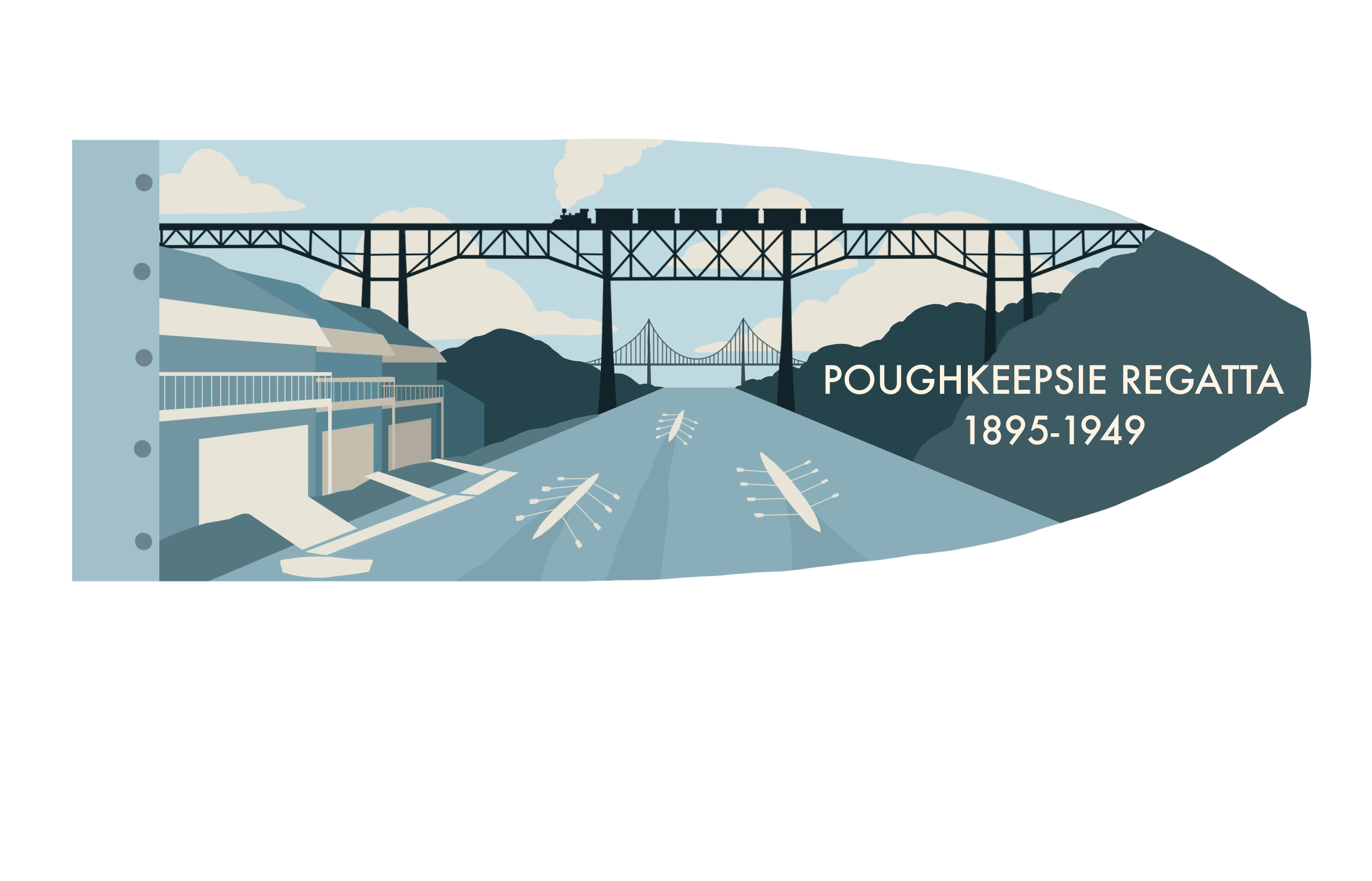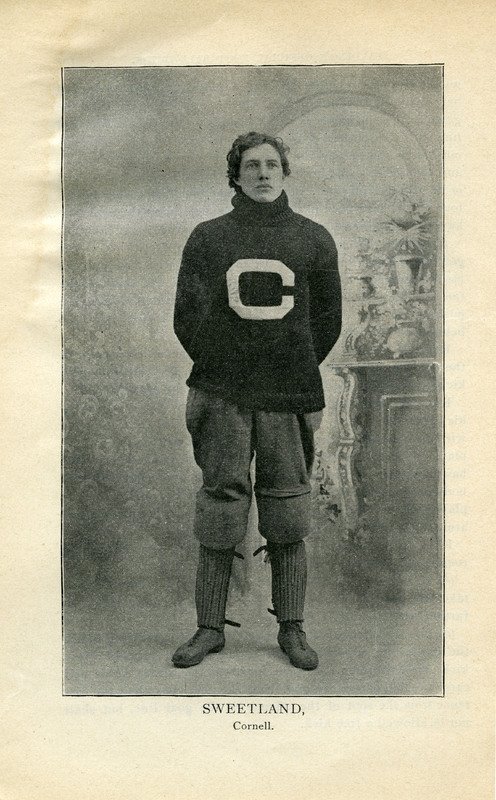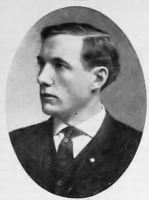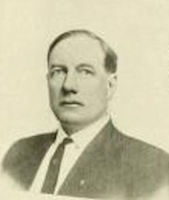Edwin R. Sweetland
Syracuse's Crew Coach 1900-1902
Edwin Regur Sweetland, originally from Dryden, NY, was a football player before becoming a member of the Cornell crew in 1898. He was a tackle on the varsity football team for 1 year at Union College before transferring to Cornell in 1897 where he was again on the varsity football team and tried out for crew that year. He failed to make the varsity crew in 1897, but tried again in 1898. That year he was successful and served as a substitute at the IRA Regatta held on Saratoga Lake and then would row at number 5 position in the 1899 Poughkeepsie Regatta. He graduated in 1899 from Cornell with a bachelors in agriculture.
The fall after graduation he began his first coaching job at Hamilton College as head football coach. This began his 20 year career in coaching a variety of college sports. He left Hamilton after the season's end and started as head football coach at Syracuse University in January 1900. In February, he was asked to coach the crew coach serving as the first crew coach at Syracuse University. Syracuse had not had rowing as a sport, despite having hosted several regattas on Onondaga Lake previously, and Sweetland essentially had to build a rowing program from scratch.
Sweetland and the University had hopes of entering the Poughkeepsie Regatta that year but after a 2 mile race on Onondaga Lake in June 1900, which they lost, it was decided that they were not ready. Sweetland continued as crew coach in 1901 and after a year of practice and training the crew was deemed ready for more serious competition. In June 1901, the crews competed in a regatta on Onondaga Lake, which they almost won, so the crew entered the Poughkeepsie Regatta for the first time that year. Syracuse did not make a great showing at Poughkeepsie that year or the next year in 1902, but as a new program they showed promise.
In the fall of 1902, Sweetland asked for a much higher salary from Syracuse. He still served as both crew and football coach and had also taken on coaching the track and field and basketball teams, so most likely felt he deserved more compensation for all of the coaching he did. Syracuse refused to increase his salary so he resigned from all coaching positions. The Athletic Council tried to retain him as football coach, but he refused.
He returned as head football coach for Hamilton College for the 1903 season. He was offered the position of assistant coach to Cornell's Charle E. "Pop" Courtney in 1904 by the man himself, when Courtney's previous assistant, Frederick D. Colson, left for a position at Harvard. The Athletic Council without Courtney's knowledge had already hired Charles A. Lueder as assistant coach. When Courtney objected, a power struggle ensued and ultimately Courtney was given power to hire staff and decide crew positions without the interference of the Athletic Council. But by the time this was resolved, Sweetland had been offered and accepted the position of head football coach at Ohio State. In 1905 and 1906, he would take on the additional responsibility of athletics trainer and coach of the track and field team. His tenure at Syracuse would be the last time he served as a crew coach.
For the next decade and a half, Sweetland worked as a football coach at a number of universities. In 1907 he left Ohio State for Colgate to coach both track and football. In 1909, he coached basketball and football at Kentucky State University (now the University of Kentucky) and in 1911, he returned to Ohio but this time to serve as head coach for Miami University in Oxford, Ohio. After one season there, he returned to Kentucky State University. In 1913, he left Kentucky for West Virginia University and in 1914 he moved onto Tulane where he coached football, basketball and track.
He would finish his coaching career at Alfred College in western New York where he served as football coach for the better part of 1915-1919. After this, he returned to his hometown and became a farmer and lawyer (he had obtained a law degree while at Kentucky State University). In addition, he would hold political office in his town, serve on the draft board, and became town supervisor for Dryden in 1938, remaining in that position until 1944.
On October 21, 1950, he passed away in Dryden at the age of 75.
Sources about Sweetland:



